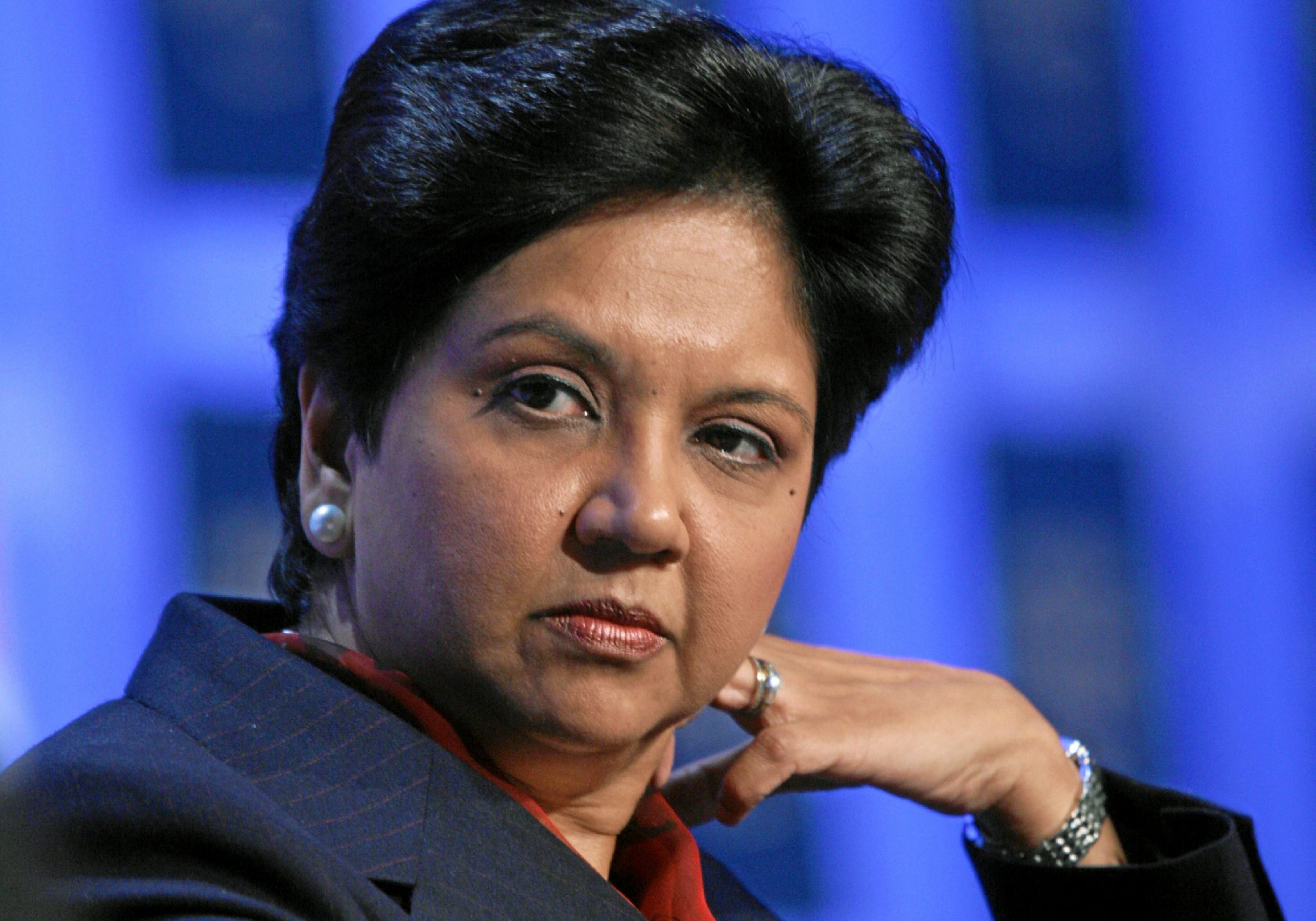
Building a career with impact in CSR
Creative and ambitious people that can help businesses shape and deliver their CSR agendas are in demand, says Lakshmi Woodings. Discover what careers in CSR involve and the skills you’ll need to succeed


What are the biggest challenges facing a CEO, in this increasingly volatile, uncertain and complex world?
I think the change we’re seeing in the world today is unprecedented. Every aspect of the world is changing from the economic balance to the tools and technology we use to run our businesses. So the CEO of today has to have incredible strategic acuity, enormous resilience, agility, and flexibility, and then bring the rest of the organisation along with them. You can either see these times as incredibly exciting or very scary. Scary times call for leadership of a different kind to take us to a new place. That’s what we’re all going through today as CEOs.
What is your advice to business schools about the skills they need to be imparting to students, to provide graduates who are fit for purpose?
Business schools teach people to foster capitalism and these schools were created to enhance and keep capitalism alive. I think the shareholder value theory is the primary message that most business schools impart to their students; that is, shareholder value is paramount and creating value at all costs is what is taught. I’d go so far as to say that there is a focus on making money and if you have a legal problem, get somebody from the law school to solve it. If you have an environmental problem, get somebody from the environmental school to solve it. If everything fails, get somebody from the divinity school to pray for you…
However, things have to change because business cannot exist in a vacuum. Business cannot pass on costs to society and business cannot survive by just worrying about shareholders and not worrying about the communities and the societies in which they operate. We have to create a new form of capitalism that works for everyone and to do this, we need to re-tool Business Schools and students to realise that they’re not just going to graduate as money-making individuals, but have a purpose too. Students should graduate knowing that capitalism has a bigger role than just creating shareholder value in the short term.
Do you believe that a cohesive force of business graduates across the world could be a much bigger influence on society going forward?
In a way, everybody picks up the debris from what capitalism has done. If capitalism is really a force for good in society, you’re supposed to address the whole issue of inequality and make sure that money doesn’t just flow to the top, but flows to the whole pyramid. Governments are then stuck with the debris from capitalism gone wild.
If we really want business students to graduate as real citizens of the community, practising a new form of capitalism, they’ve got to understand that what they feel personally cannot be different from what they practise in their professional lives.
The best example somebody gave me was during the 2008 financial crisis. If every financial services firm’s capital was at stake, would they have taken the kind of risks that they took? But, if all of us feel vested interest in the companies for which we work, because they impact us personally, the companies would be different. We have to understand that companies are communities and we have to operate for the betterment of communities. To do this, student recruitment has to change, as does
how we develop students and how we judge success.
Salaries cannot be the only metric that assesses whether a school is good.
But unfortunately, that’s the only metric we have.
How can business schools teach students about issues of sustainability and responsible management. Should it be in their DNA?
It’s not in the DNA of the students because the intake is pretty diverse. Yet most business schools exist within a university ecosystem, where there are law schools, environmental schools and so on. So the questions to ask are: Do you break down the silos in the universities? Do you take a case and bring in people from the other schools to help you teach it? Why do you have to zip through a case? Why don’t you take one case and study all the facets of it? We’ve forgotten that business exists in a community and the university is a microcosm of that community.
Why shouldn’t business school professors say: ‘I can invite others in to give their perspectives’.
Also, we’re still trying to get these MBA students out in 18 months. We’re shortening the cycle when issues are more complex; for example, the role of social media in business. However, we don’t have the luxury to train novices for years.
What more do you believe should be done to attract women into business courses, or is the real problem higher up the tree as you start to move towards the boardroom?
The calibre of women in business schools is phenomenal, so clearly there’s leakage, because somewhere in middle management we’re losing them. I think when students want to get married and have children, the workload is not consistent with them doing all these jobs. You can say a lot of the millennials have equal partners who share in the workload, but equal partnering doesn’t mean the husband can give birth to the child. There are still roles the women play and somebody has to do the job disproportionally in child caring. Workplaces have not yet learned how to provide the kind of support to allow women to have a life and make a living. This change has to happen if we want to retain and promote women.
Another challenge we face is class stratification. We want people who step off the ‘track’ to come back. So we’ve started a trial programme to enable this. Also, if we want the best, we have to draw from the entire population, and the only way to do it is make the workplace an extension of the person’s life. For example, opening a day care centre here on campus, so parents, especially women, can tend to their children whenever necessary. More companies have to do this if we want women to come into the workforce.
How have you succeeded in combining the incredibly demanding roles of mother and CEO?
First of all, I have a very supportive husband, which helps. Second, having an extended family willing to help with the kids made a huge difference. They put their lives on hold to help us raise the kids.
PepsiCo itself is a great place because of the ecosystem that supported me. For example, even the CEO who I succeeded, Steve Reinemund, helped me pick up the kids when my husband was stuck in traffic; he’d say: ‘I’ll go pick up one and you go pick up the other’.
I’m very grateful to this company, for what it gave me and for what I’ve been able to do for the next generation of employees.
What advice would you give students on how to start a career overseas or, given the buoyancy of India as a business superpower, are they better off staying in India?
India has many issues, and needs a strong group of leaders to take it to the next level. Brain drain from India is not a good thing but these students have many more opportunities today than existed when I graduated. In my class, I was only one of five women. Today, 20%-40% of the class are women. Things have changed, so it behoves those kids to give back to the country for what the country has invested in them.
India has its share of problems and these business students can do wonders to help the country address these issues. If an army of graduates from the country’s top business schools cannot solve India’s problems, who is going to?
They live in the midst of these problems, and they should sit down and figure out how to address them.
What do you believe is the best way to ensure lifelong learning?
Business schools have a unique opportunity. Let’s say I graduated today from Yale School of Management, I’d love Yale to say that if I pay another
X thousand dollars, I can come back for a refresher programme for the next X number of years, to learn about the most important and current topics and have access to their online education to go deeper in those topics.
It’s a golden opportunity to keep that connection with alumni, and because the world is changing so profoundly, it is not possible for leaders to keep up with everything that’s going on.
But today, we have to keep learning. For example, I grew up in a generation where social media didn’t exist, but I have to learn about it because the young people who work here, and who live on these devices, are the people generating all the noise. On the other hand, you can’t take a 30-year-old and say run a $63bn USD company.
I think each of us also has to do our own learning, figuring out our curriculum and how we need to engage certain topics, we can’t just wait for others to give it to us. For example, today’s CEOs have to be foreign policy experts, understand issues in every country and the role of multilateral organisations, how NGOs think and behave, and understand really deep sustainability issues.
We have to keep learning. Expertise is a leaders’ goal. But we have to strive for this goal.
How would you like to see business graduates make an impact on our planet?
I’d say to each of them, bring your whole self to work and think of what you’re doing as having an impact on your community. Make it very personal and see if the business is doing the right thing by the ecosystem in which you live in. If it isn’t, work in the company to change the model.
The young people who are graduating now should make their voices heard to create change. Through this, we can actually reform capitalism to be a real force for good.
This article originally appeared in the print edition (January 2019) of Business Impact, magazine of the Business Graduates Association (BGA).

Creative and ambitious people that can help businesses shape and deliver their CSR agendas are in demand, says Lakshmi Woodings. Discover what careers in CSR involve and the skills you’ll need to succeed

As an impactful business school, adopting a responsible approach to business management is essential, for both the institution and its students alike. In this article,

Drawing on Apple and Patagonia as examples, The University of Law Business School’s Stuart Ailion considers the merits of strategies that combine ethical outlooks with profit making
For questions about editorial opportunities, please contact:

